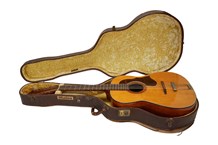Drouot chief Dominique Ribeyre admitted that “after several years of regular growth, various factors have affected the market”, citing a “wait and see” attitude fostered by “the international political context and prolonged economic slowdown in the US”; and, in France, “a lengthy election period plus economic uncertainty” that had “incited vendors to delay dispersing their collections”.
Another factor affecting commissaires-priseurs’ turnover – which Ribeyre did not mention – was the arrival of Sotheby’s and Christie’s on the Paris auction scene at the end of last year.
The fall-off in Drouot sales was most marked in March and April. Results picked up in May and especially June, prompted Ribeyre to envisage “renewed growth in Autumn 2002”.
There were 115 bids of over €150,000 (equivalent to Fr1m or roughly £100,000), the same number as in the first half of 2001; and four bids of over €1m, led by a world record €4.1m (£2.65m) for Sonia Delaunay and her 1915 Marché au Minho.
• On July 10, under the terms of France’s recent auction reform, it became illegal for traditional commissaires-priseurs to continue staging auctions (other than court-order sales) without acquiring commercial status and official approval from the government-appointed Conseil des Ventes (auction watchdog).
By deadline day, 316 firms, representing 374 commissaires-priseurs, had lodged their applications and 262 firms had been given the green light.
Drouot sees a first half decline of 15% in sales
Sales by members of the Paris Compagnie des Commissaires-Priseurs (i.e. all Paris auctioneers bar Christie’s and Sotheby’s) fell 15 per cent in the first half of 2002 to €290m (£187m), as compared to the first six months of 2001.




